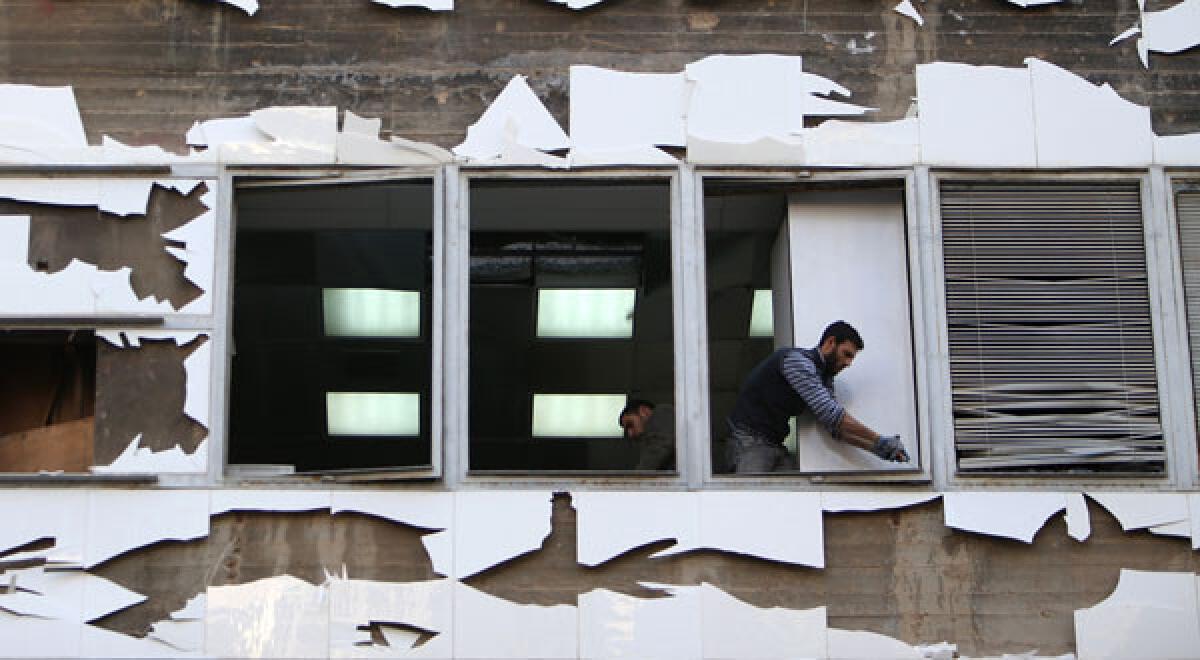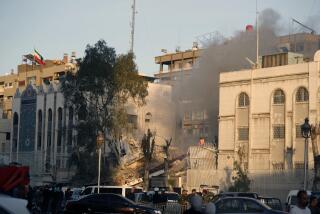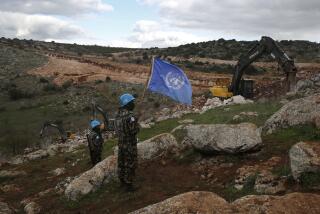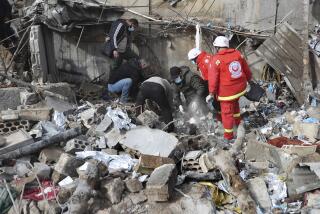Huge Beirut blast kills 6 including former ambassador to U.S.

BEIRUT -- A huge car bomb rocked the Lebanese capital on Friday, killing at least six people including a prominent Sunni politician-statesman who was an outspoken critic of Hezbollah.
More than 70 people were injured in the blast, officials said.
Plumes of black smoke billowed into the air, and the force of the explosion propelled flaming debris, twisted hunks of metal and shattered glass over a wide area. Hours later, bloodstains still marked the pavement as white-clad forensics experts combed the scene, close to downtown hotels as well as government buildings including parliament.
Security officials said the apparent target of the blast was Mohamad Chatah, a former Lebanese ambassador to the United States whose death was confirmed by a political faction with which he had close ties, the Future Movement.
He was traveling by convoy when the enormous bomb, thought to have been made up of more than 100 pounds of explosives, shattered the morning calm of Friday, the main prayer day of the Muslim week and a day off from work for most.
[Updated, 8:46 a.m. PST Dec. 27: It also was quiet because many Lebanese were marking the Christmas holiday week.
Hezbollah, the Shiite militia, denounced the killing and said it benefitted only “enemies of Lebanon.”]
The attack drew widespread condemnation. Prime Minister Najib Mikati called Chatah a moderate “who believed in dialogue and the language of reason.” From across the region, there was an outpouring of dismay on social media, on which Chatah had been active.
Chatah, 62, an economist and diplomat, was at the time of his death a senior adviser to members of the Saudi-backed Future Movement and a member of a group called the March 14 bloc, which had convened the meeting he was traveling to when the explosion occurred.
He was a confidant of successive Lebanese leaders including former Prime Minister Rafik Hariri -- who himself was assassinated under eerily similar circumstances in February 2005, when his motorcade was hit by a massive bomb, not far from where Chatah died.
Chatah’s public stance on the conflict in neighboring Syria put him at sharp odds with Hezbollah. His movement has long called for the Lebanese Shiite group to halt its paramilitary operations in Syria and hand over its arms to the Lebanese state.
What was apparently Chatah’s final tweet, sent shortly before the blast, reflected that view:
#Hezbollah is pressing hard to be granted similar powers in security & foreign policy matters that Syria exercised in Lebanon for 15 yrs.— Mohamad B Chatah (@mohamad_chatah) December 27, 2013
Spillover violence from the Syrian civil war has led to a string of bombings and other attacks in the Lebanese capital. However, previous deadly strikes have mainly taken place in the city’s Shiite-dominated southern neighborhoods, rather than in the commercial center.
Last month, a pair of bombings outside the Iranian Embassy compound in Beirut killed 23 people and injured more than 150. Iran, a prime player in Syria’s proxy war, is a backer of Hezbollah and Syrian President Bashar Assad.
Hassan, a special correspondent, reported from Beirut, and special correspondent Bulos from Amman, Jordan. Staff writer Laura King in Cairo contributed to this report.
Twitter: @laurakingLAT
More to Read
Start your day right
Sign up for Essential California for news, features and recommendations from the L.A. Times and beyond in your inbox six days a week.
You may occasionally receive promotional content from the Los Angeles Times.







